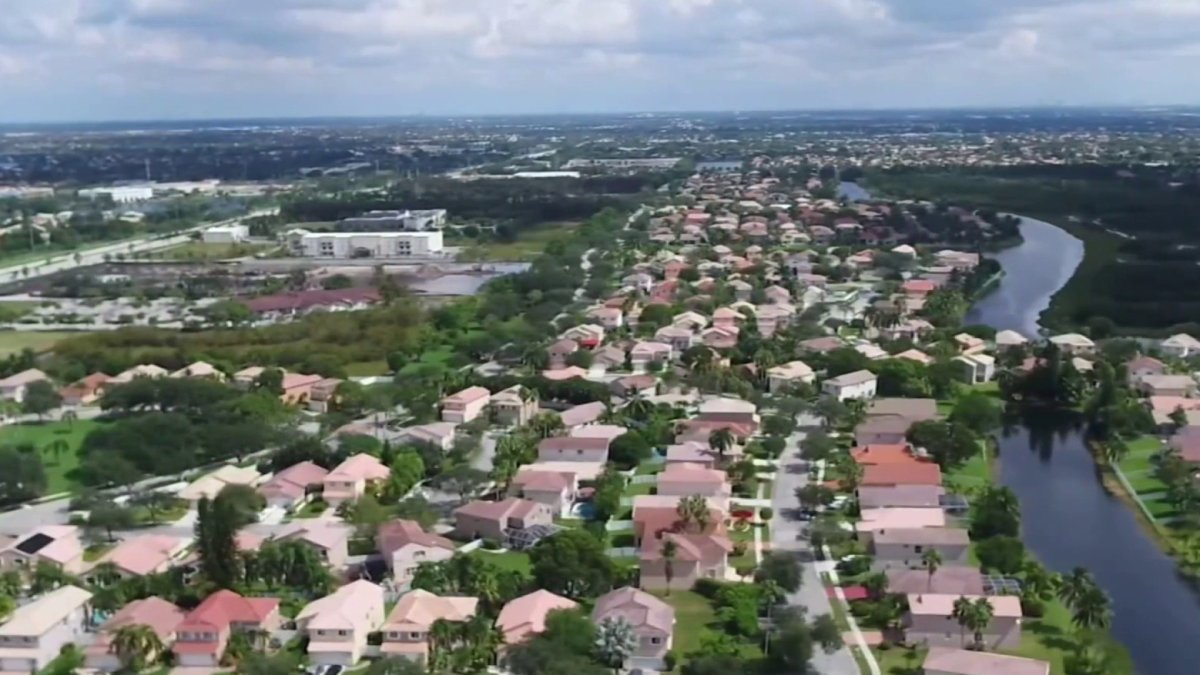Beacon Council mission to Spain nets 14 hot prospects to come here
Advertisement

The Miami-Dade Beacon Council continues to pave the way for the county’s future with an economic development mission to Spain.
“It’s really to engage Spanish businesses and Spanish business leaders in a way that allows us to showcase Greater Miami,” said Juan Carlos Liscano, American Airlines vice president for Miami, the Caribbean and Latin America and Beacon Council chairman.
“Ultimately, what we’re trying to do or accomplish is to expand jobs, expand investment, and Spain is our number one foreign direct investor in Greater Miami,” he said. “They’ve been a great market.”
“Beacon Council has been developing Spain [relationships] for, I think, 10 plus years,” he said, “and maybe … one of the better ways to highlight sort of the evolution of that relationship is there are more than 390 Spanish companies in Greater Miami and Beacon Council has been linked to maybe 41% of them.”
Before the Beacon Council’s Spain economic development mission April 21-27 “we did a lot of pre-work with [the Spanish’s government’s exportation and investment agency] ICEX,” he said “We did a lot of planning. I believe we ended up meeting … with 60 plus Spanish firms.”
“In Pamplona, we met with CEN [Confederación Empresarial de Navarra],” he said, “which is kind of that organization that represents the businesses there, and then it was CEOE [Confederación Española de Organizaciones Empresariales] in Zaragoza.”
The trip was coordinated, preplanned and, said Mr. Liscano, a “very intentional effort to maximize meeting with many numbers of businesses that are interested in coming to Miami. [About] 70% of Miami speaks Spanish…. It makes it really easy for a Spanish company to transition business, to grow business in Greater Miami. Think about other parts of the US and you sort of start with the language barrier, but when you think about Greater Miami, they feel really comfortable – I think it’s one of the reasons why it’s a really important launch point or expansion point for them – so that’s number one.”
Another reason, said Mr. Liscano, is our business climate makes it easy and conductive for businesses to come.
“If I hear one thing more than anything else, it’s how welcoming and supportive we are of any company thinking about bringing their investments or growth to Miami,” said Mr. Liscano.
The Beacon Council is proud of how its special relationship with Spain has evolved, he said.
“There were 18 total participants that went,” he said, “both public and private.”
They included leaders from the Beacon Council: Mr. Liscano; Rodrick Miller, president and CEO; Maria Budet, chief marketing officer; Mario Sacasa, senior vice president for international economic development; and Madeline Mesa, director of international economic development.
Miami-Dade County sent commission Chairman Oliver Gilbert III, who heads the International Trade Consortium, and Gerard Philippeaux, the executive director of the International Trade Consortium, as well as support staff.
North Miami Vice Mayor Mary Estimé-Irvin and John Lorfils, the city’s director of economic development, attended.
Others aboard were Yolanda Cash Jackson, shareholder at Becker and Beacon Council immediate past chair; Pamela Fuertes, dean of global business, trade and transportation at Miami Dade College; Rolando Aedo, Greater Miami Convention & Visitors Bureau chief operating officer; and Pilar Maté, international client service specialist at Mowery & Schoenfeld.
“I’m the chair of the board for Beacon Council,” said Mr. Liscano, “and it’s like having another full-time job, but I do it with a lot of pride. It’s part of being connected to the community that you’re a part of. My other job is with American Airlines, and so clearly we met with a few aerospace companies that are interested in expanding companies that provide technology around airspace management, or surface movement. There were quite a few conversations around that.”
There were also conversations with Spanish companies focused on clean tech, said Mr. Liscano. “They tend to be a little bit further ahead, as they think about clean tech and they think about the environment and climate impact, and we’re moving in that direction and so we’ve made quite a few connections in that space as well.”
This doesn’t work, said Mr. Liscano, if the Beacon Council doesn’t have the capacity to track each lead and prospect.
From the Spain economic development mission,120 business contacts were made so far – numbers are still being pulled together.
“120 business contacts,” said Mr. Liscano, “14 new prospects, and there are five actual new projects … and these are the ones that are pretty solid, we feel pretty confident we’re going to be able to bring them home, for lack of a better term.”
The work continues past the trip. The efforts are an ongoing cycle.
“I would say on what would be the finest [outcome] of the six-day trip to walk away with 120 new business contacts, 14 new prospects, and five actual new projects, I would rate that pretty awesome success as it relates to the trip,” said Mr. Liscano. “There’s work that happens afterwards in terms of engaging a lot of these leads, a lot of these contacts, demonstrating how we can make it easy for them to think about Miami as their next best place of investment.”
In addition to 70% of Miami speaking Spanish, he said, “we are truly the only hub in the United States that is a gateway to the Caribbean and Latin America, and that is an important point for a lot of these companies that are thinking about expansion and investment and growth.”
It was a successful mission with the objective of promoting Miami-Dade County as a global business destination, said Pamela Fuertes, dean of the Miguel B. Fernandez Family School of Global Business, Trade and Transportation at Miami Dade College.
“I think that the calendar of meetings and programs,” said Dean Fuertes, “really a lot of interesting business facing programs, was very well designed and very strategic and aligned with where I think we are as a community in terms of our target industries.”
The visit gave a good understanding as to what the talent needs are for some of the businesses they met with, said Dean Fuertes. It was valuable to hear directly from the businesses evaluating investing in the community or those already investing and continuing to expand their presence in Miami.
Additionally, she said, she was pleased to see how well received their participation was as an academic institution.
“Something that I think would come up consistently,” Dean Fuertes said, “was ‘How do you help support the talent needs of your community in Miami? How can we work with you to help support the talent needs of our respective businesses?’ For me, that was one of those important key takeaways, to be able to talk about how Miami Dade College competes in a global business community, how we serve a global business community and then really talk about some of the initiatives that we have underway.”
The mission came days after graduation ceremony, said Dean Fuertes. As a result, she was able to share that the college had a graduating class of over 13,000 from 118 countries, “and this was something that for them was extremely of big interest – the diversity, the full scope and breadth of what we were doing. I also shared information about some of the programs and courses that we’re launching, certainly all of our work in our artificial intelligence space. They were thrilled and really genuinely interested in learning more.”
Many companies, said Dean Fuertes, were also interested in learning about the programs offered in the college’s global business supply chain program and in its aviation trade area.
“A lot of companies in the aviation sector and transportation sector were very interested in learning more about that and really,” Dean Fuertes said, “they were interested in knowing about that connection between businesses and academic institutions.”
The mission is expected to have long-term effects on the community.
There were definitely talent development opportunities, said Dean Fuertes, who also believes it is beneficial to understand the needs of these businesses in order to “help contribute to the greater community through our academic offerings, and whether it’s a company in aviation or a technology company or company in hospitality, I think that was very beneficial for us.”
Data and insight as to the needs of the Spanish companies was gathered.
“There were a lot of opportunities for us to look at opportunities for global partnerships and collaboration,” Dean Fuertes said. “Miami Dade College competes on a global level. We serve a global business community, and so being able to speak with some of these institutions or some of these private businesses about what some of the collaborations with them could look like or could be, I think, was very rewarding for us.”


